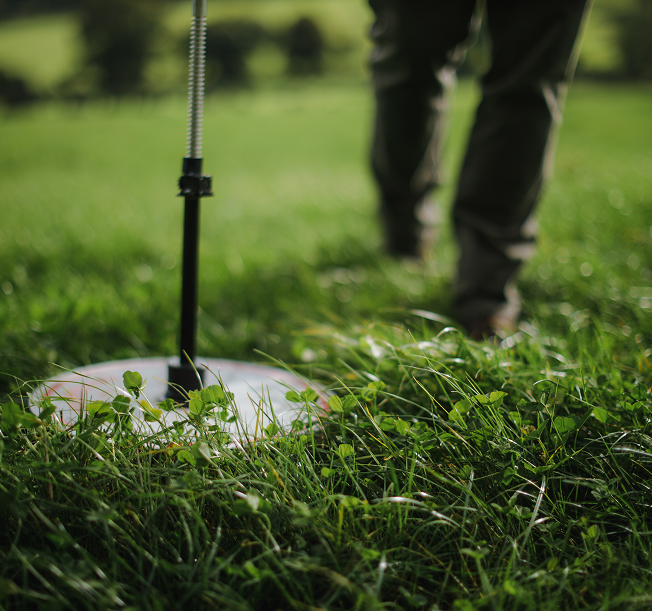De voordelen van biologische landbouw:
waarom kiezen voor biologisch
rund- en lamsvlees
Biologisch als duurzame oplossing - Beter voor de planeet
- Biologisch betekent werken met de natuur, niet ertegen.
- De voordelen van biologische productiemethoden voor het milieu en de biodiversiteit zijn wetenschappelijk bewezen.
- Biologische landbouw verlaagt het risico op milieuvervuiling en helpt de uitstoot van broeikasgassen te verminderen door het gebruik van chemische meststoffen en pesticiden sterk te beperken.
- Bioboeren werken binnen natuurlijke systemen en cycli op alle niveaus, van de bodem tot aan de planten en dieren.
- Biologische boerderijen zijn ecologisch diverser dan conventionele boerderijen.
- Biologische landbouw ondersteunt het levensonderhoud van kleinschalige boeren in landen met een laag inkomen.

Biologische landbouw is beter voor de bodem
Biologische boerderijen
Koolstofvastlegging
- De bodems van biologische boerderijen leggen ongeveer 1,6 ton koolstof per hectare per jaar vast.
- Het gebruik van organische meststoffen, zoals gecomposteerd afval uit de veehouderij, verbeterde gewasvariëteiten en rotaties, verminderde grondbewerking en het zaaien van dekgewassen, dragen bij aan de verhoogde koolstofopslag.
Klimaatbestendigheid
- Biologische landbouw kan bescherming bieden tegen overstromingen omdat biologische bodems twee keer zoveel water opslaan.
- Biologische bodems presteren beter tijdens droogteperiodes dan niet-biologische bodems.
Bron: IFOAM, 2023
Waarom de bodem belangrijk is in de biologische landbouw
Het behouden van vruchtbaarheid van de bodem en het voorkomen van erosie is een uitdaging voor alle boeren. In plaats van kunstmest te gebruiken, verzorgen biologische boeren hun bodem met mest, compost, ‘dekgewassen’ en vruchtwisselingen. Wereldwijd verliezen we bodem veel sneller dan deze wordt gevormd, namelijk 10 tot 40 keer sneller. 95% van onze voedselproductie is afhankelijk van bodem, dus het is belangrijker dan ooit om op een manier te boeren die de bodem beschermt en behoudt.
- Biologische landbouw is beter voor de lange termijn gezondheid van de bodem.
- Biologische boerderijen hebben een grotere diversiteit aan microben in de bodem, wat helpt gewassen te laten groeien zonder kunstmest.
Biologische landbouw is beter voor wilde dieren
Bestuivers spelen een cruciale rol in de landbouw, met 76% van de wereldwijd belangrijke gewassen en driekwart van de voedselgewassen die afhankelijk zijn van bestuiving door insecten. Bestuivende dieren, die essentieel zijn voor de landbouwproductie, nemen echter af. Deze afname wordt grotendeels toegeschreven aan intensieve landbouwpraktijken, met name het zware gebruik van pesticiden, dat de insectenpopulaties aanzienlijk beïnvloedt.
Beter voor dieren: biologische veehouderij en dierenwelzijn
Dierenwelzijn is een van de belangrijkste aspecten van de biologische landbouw. De biostandaarden eisen dat dieren voldoende ruimte en frisse lucht krijgen en dat ze worden gehouden in omstandigheden die passen bij hun natuurlijke gedrag. Kleinere kuddes en meer toegang tot buitenruimtes betekenen dat biologische dieren niet routinematig hoeven te worden behandeld met antibiotica en ontwormingsmiddelen.
Biologische normen voor dierenwelzijn
Toegang tot weiden: Toegang hebben tot weiden wanneer de weersomstandigheden en de bodemgesteldheid dit toelaten.
Voldoende ruimte: Zowel binnen als buiten voldoende ruimte hebben, wat stress en ziektes vermindert.
Natuurlijk grazen: Natuurlijk grazen en foerageren op biologische weiden.
Geen antibiotica: Niet routinematig antibiotica krijgen.